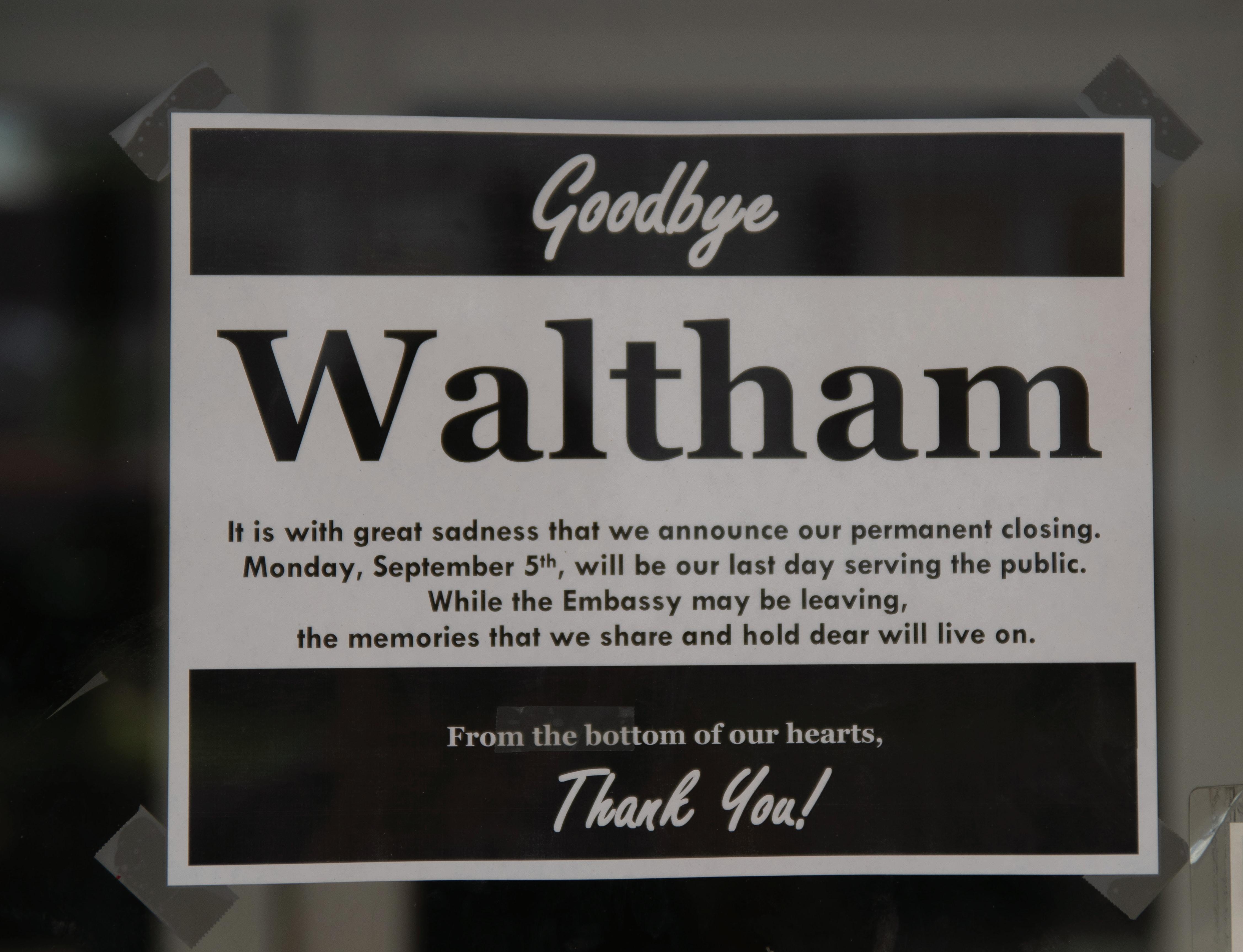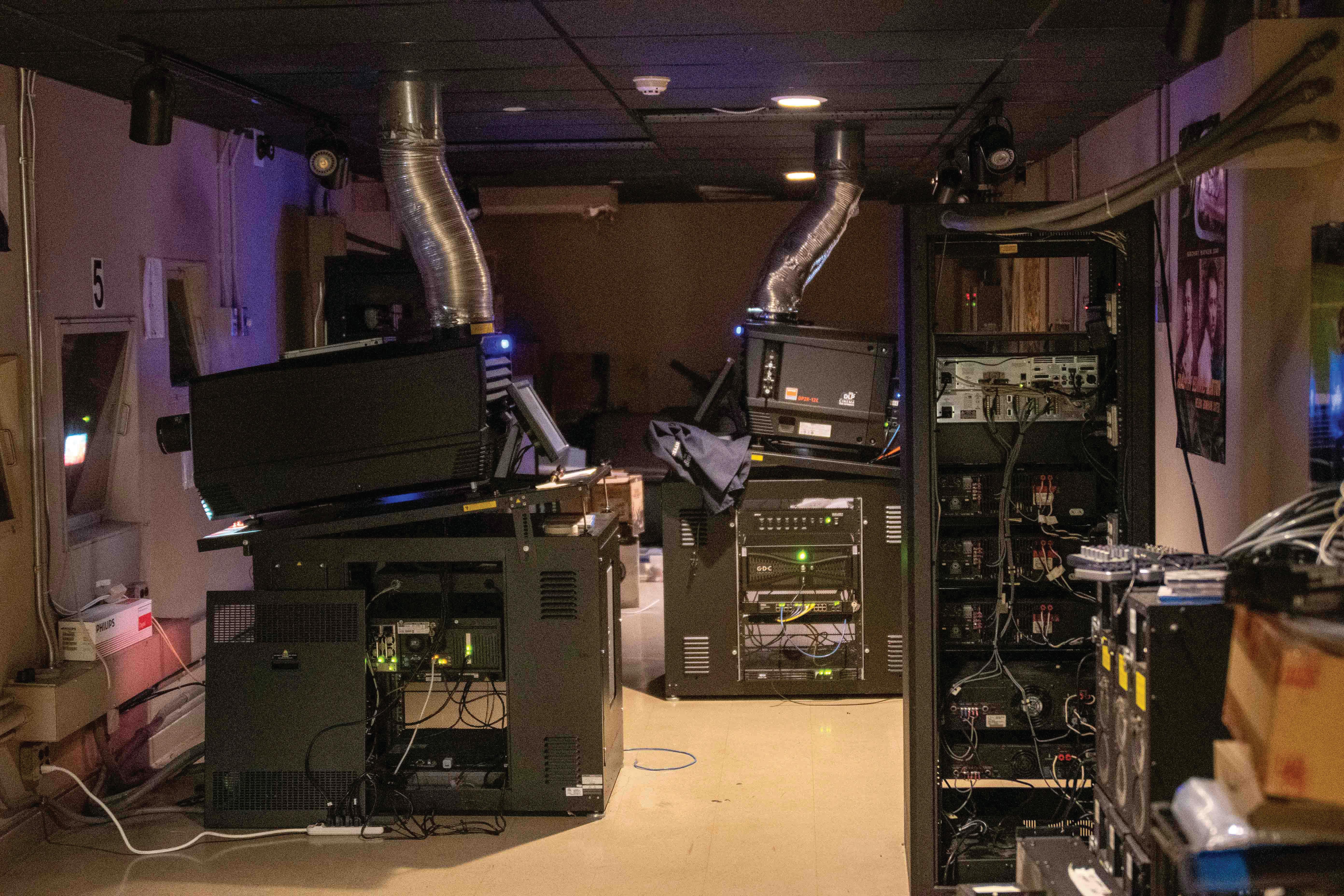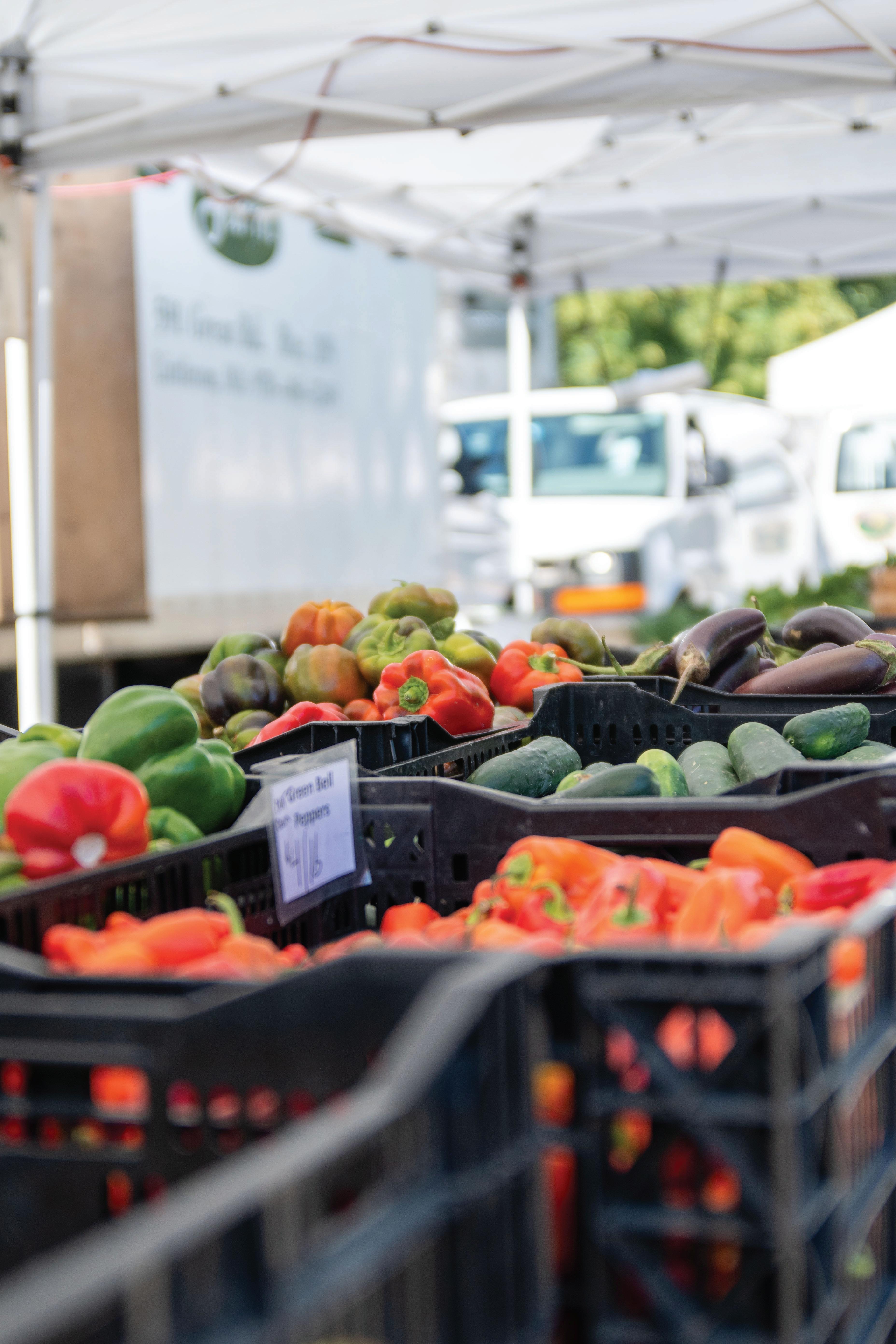
10 minute read
FEATURES
justfeatures
ON THIS DAY… In 1969, the first episode of “Scooby-Doo Where Are You!” aired on CBS. The original series of the long-running franchise aired for just two seasons. FUN FACT China spans five time zones, but the entire country is on Beijing time. That means that the sun rises around 10 a.m. in some parts of the country.
Advertisement
Waltham Farmers’ Market: Global flavors, local community
On Saturdays from June through October, an empty lot on Moody Street transforms into a bustling market. The Justice wanted to find out what makes the Waltham Farmers’ Market special.
By ARIELLA WEISS
JUSTICE EDITOR
On a sunny Saturday morning in downtown Waltham, excited customers are lined up at the edge of a parking lot filled with stands displaying colorful produce, crumbly pastries, and exotic plants. At 9:30 a.m. sharp, a bell is rung. The Waltham Farmers’ Market is officially open for the day.
“They ring a bell at 9:30, and people will full-on sprint at you,” Madigan Murphy told the Justice at the market on Sept. 3. She works for Spring Brook Farm in Littleton.
The market, currently operating out of the former Embassy Theater’s parking lot, is in its 32nd consecutive year. It runs from June to October. The market requires that vendors grow, craft, or make the products they sell, “so everything is local,” said Missy Goldberg, a market organizer who is one of six volunteer coordinators who make the market happen. Many customers buy all their produce for the week at the market, Goldberg said. This means there’s lots of return customers and “some serious shopping going on,” she explained.
Patricia Barrios runs the market stand for Flores de Cafe with her husband, Roberto Perdomo. Barrios also teaches Spanish at a private college preparatory school in Weston. She and Perdomo got up at 5:30 a.m. to prepare for the day’s market. The couple is from Colombia and now live in Massachusetts. They run part of their coffee roasting business out of their home in Wayland. The rest of Flores de Cafe is located thousands of miles away, at Perdomo’s family’s coffee farm in Pitalito, in the Huila region of southwest Colombia. The region is one of the world’s premium coffee producers.
Flores de Cafe is one of several “micro-farms” in Pitalito, where, Barrios said, “coffee is a culture. Everyone shares what they know.” Barrios and Perdomo work closely with their family in Colombia — the coffee sold at the Saturday market arrived in the United States the previous day. “It’s expensive, but it’s good because it’s fresh,” Barrios said.
Barrios’s passion and pride for coffee culture is contagious, and is essential to Flores de Cafe’s success at the Waltham market. “We tried to sell it in stores and it doesn’t work, because people need to know the story of the coffee.” She and Perdomo have been selling successfully at markets in the Boston area for two years. They collaborate with other family-owned coffee roasting businesses to share tips and tricks. “I feel so comfortable here [at the market]. I feel like I’m the ambassador of my product,” Barrios said.
The Concord-based Saltbox Farm has been at the Waltham Farmers’ Market since 2016. “I really like the market vibe,” said Jasmine Hunter, who works at the Saltbox Farms stand. “You’ve got your loyal customers that come to see you every week, and it’s really cute,” she said. “It’s really nice to build that relationship with your vendor and see what else is different [each week].” She also said that as a farmer, “it’s cool learning about [other vendors’] growing practices.” Hunter added, “Everyone gives each other deals and comes to talk to you.”
Despina Agapidou owns Fournos Authentic Greek Pastries, which she runs out of her home. Agapidou grew up in Greece and emigrated in 2004. “Baking was something I always liked doing,” she said. Once her kids grew up, she “decided to turn [her] hobby into a business.” Agapidou also sells at the Newton and Watertown markets. “I do the thing that I love and also support myself,” she said.
Agapidou likes the Waltham Farmers’ Market because of the location and the people. “I like the fact that people want to buy fresh products … Everybody comes back and tells you how much they loved it.” Eric Campell, of Newton, bought two containers of Agapidou’s pastries. He does the bulk of his food shopping at grocery stores but said he likes the unique options that the Waltham Farmers’ Market offers. “The pastries are expensive, but they’re a nice treat,” he said.
Agapidou has been selling her products at farmers’ markets for the past five years. Like many small-business owners, the pandemic hit her hard. “I had no business during COVID and the market was closed,” she said. The Waltham Farmers’ Market is an important source of income for vendors like Agapidou.
The Waltham Farmers’ Market is also a core food source for some customers. Martha Creedon, a volunteer organizer, said that the market raises $17,000 a year in donations. This allows them to offer a weekly matching benefit of up to $10 for customers enrolled in the national Supplemental Nutrition Assistance Program. Customers who are signed up for SNAP can use their EBT card to purchase tokens they can use to buy food from vendors. For each token they buy, SNAP recipients also get a free token of equal value from the market. The market will match up to $10 worth of SNAP tokens.
Administering the SNAP Match program and doing the fundraising that makes it possible takes a lot of work, Creedon said, “but it’s worth it. A lot of people depend on us.” In addition to the SNAP Match program, Creedon said SNAP recipients are automatically eligible to get an additional $40 to $80 to spend on fruits and vegetables every month through the state’s Healthy Incentive Program. Two of the market’s farm stands participate in the program, with two more recently approved by the state to come on board in the future.
One of the current participating vendors is Spring Brook Farm. Ken Rutledge works at Spring Brook Farm’s stand at the market. He said he appreciates how accessible the Waltham Farmers’ Market is for SNAP recipients. “We feel we’d miss that demographic otherwise,” Rutledge said, explaining that his stand gets hundreds of dollars a day in the form of SNAP money and the SNAP Match tokens at the Waltham market.
Rutledge contrasted the Waltham Farmers’ Market to the market in Boston’s SoWa neighborhood, where “the bougieness is brutal.” His coworker Madigan Murphy agreed. She said markets in Boston tend to have less locally-sourced food and more expensive items like jewelry and vintage goods, and these vendors “upcharge you a million dollars.” Murphy said the Waltham market is the most “farmers markety” market that Spring Brook sells at. The Waltham Farmers’ Market, Rutledge added, “gives farms the opportunity to be accessible.”
Market customer Andrew Krassin, of Newton, looked over the produce at the Spring Brook Farm stand. The bins had all been stacked high with fruits and vegetables in the morning. By the afternoon, when Krassin arrived at the stand, many of the containers were nearly empty.
Krassin said he does most of his shopping at farmers’ markets in the area. He said the food is fresher and more natural than at the grocery stores. But for Krassin, it all comes down to supporting local farms and small-businesses — “That’s huge to me.”
Photos by JACK YUANWEI CHENG/the Justice VEGGIES FOR ALL: Customers can purchase produce of all varieties and colors at the Spring Brook Farm stand using SNAP benefits or SNAP Match tokens.
— Justice editors Natalie Kahn and Jack Yuanwei Cheng contributed to the reporting of this story.
ORGANIZERS: Martha Creedon (left) and Missy Goldberg (right) are members of the Waltham Farmers’ Market Committee, who volunteer their time to organize and run the farmers’ market. SWEET TREATS: Despina Agapidou owns Fournos, a greek bakery. She does all of her baking at home and sells her desserts at three different markets in the Boston area.
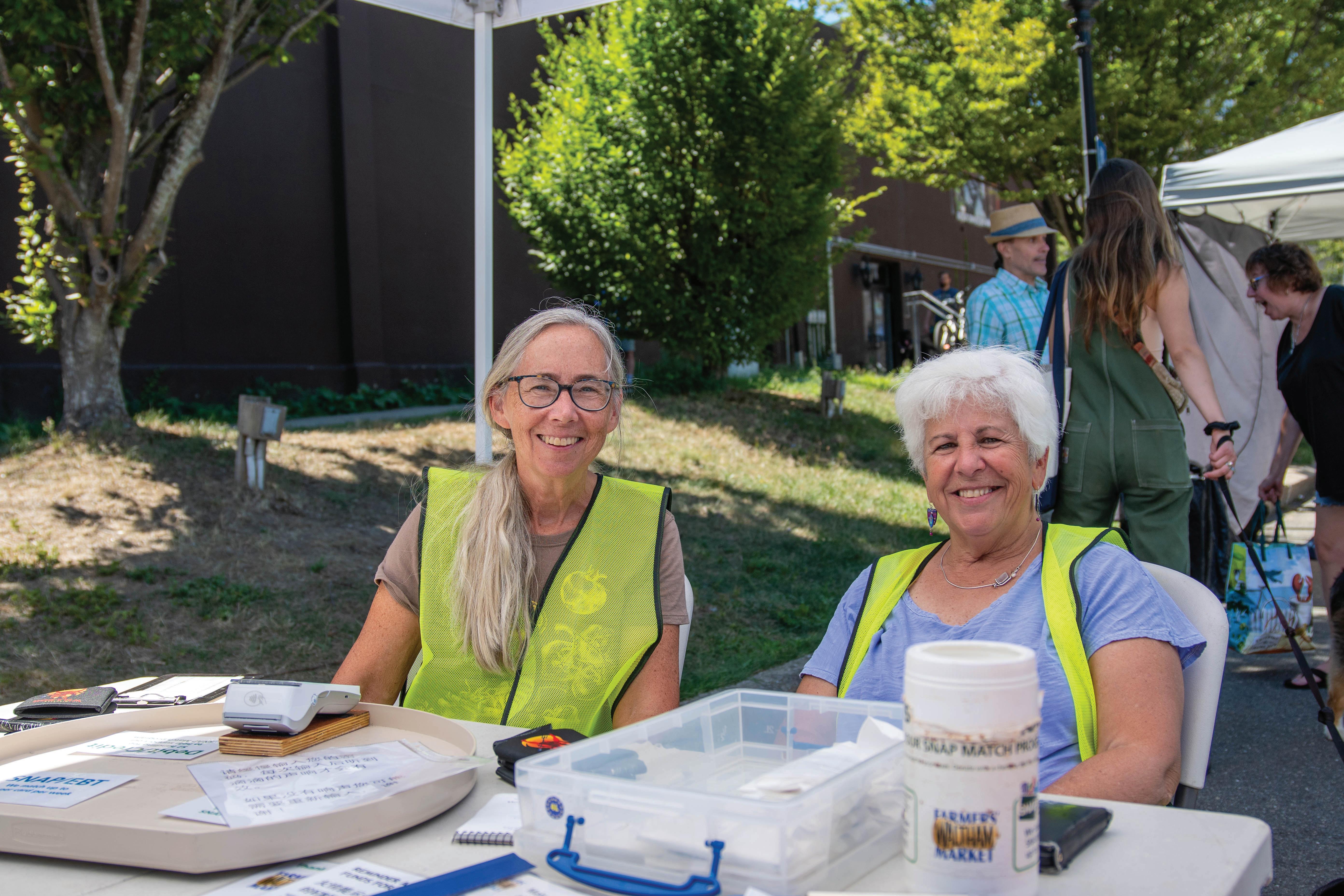
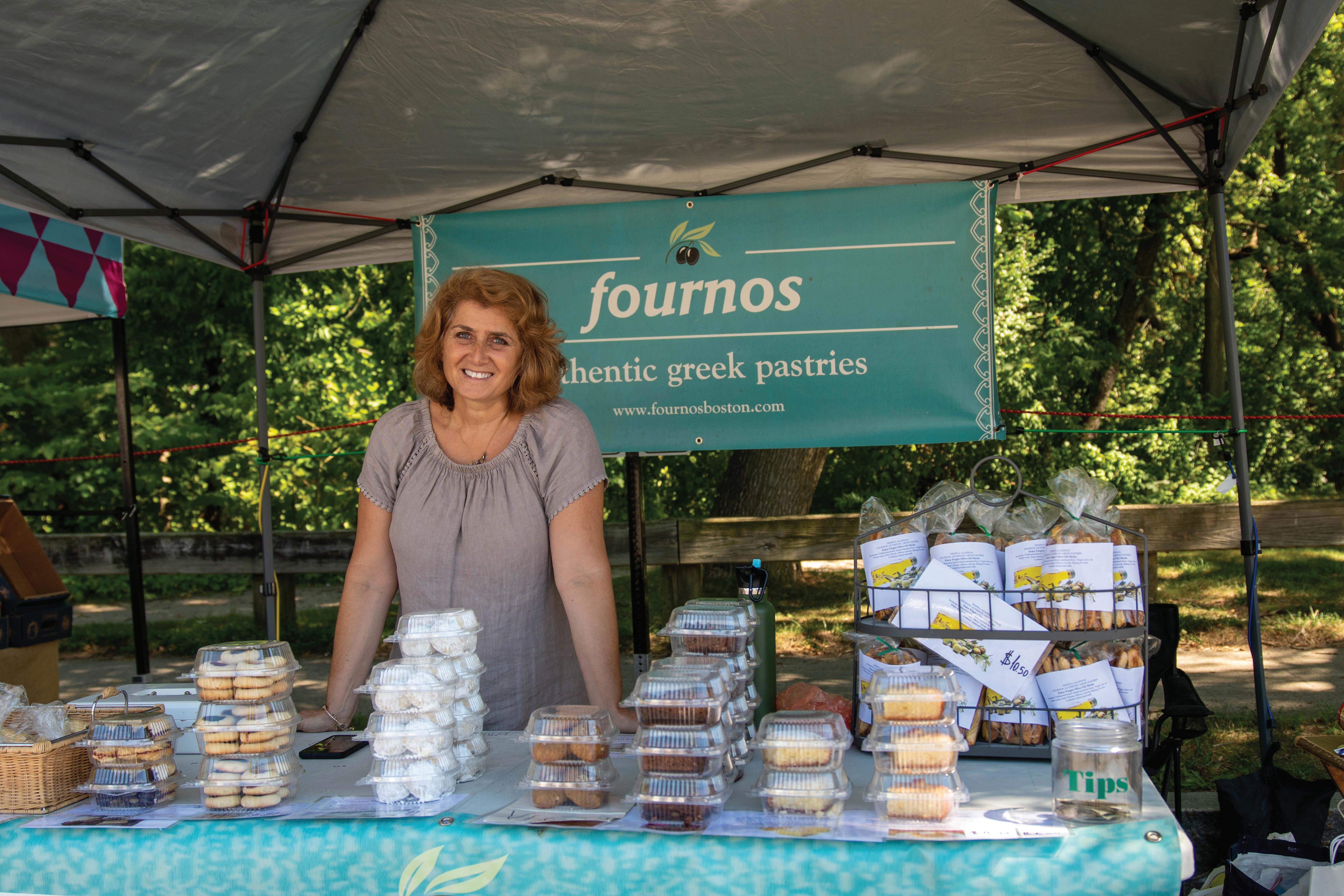
MOVIES: Embassy Cinema closes its doors
CONTINUED FROM 1
After leaving the farmers’ market in the empty lot behind the theater, she noticed the goodbye message that Johnson had put up on the marquee outside the theater just an hour earlier.
“I didn’t even realize that the Embassy theater had reopened [after the lockdown],” she said. She pointed out the beaten down movie posters, improperly stretched out in the lightboxes on the walls outside of the theater. Although the posters were all for the newest features, Lauren said it was easy to assume that the theater was still closed.
“The movies that we get are already on streaming services,” she said, “so there isn’t much incentive to go, especially if you’re paying more,” Ingram said. Even successful box office blockbusters haven’t been able to make up for plummeting ticket sales: “‘Top Gun’ has been killing it all summer, but it’s not enough,” Ingram said.
Landmark Theatres gave Embassy employees extremely limited notice about the closure, Ingram said. Their jobs were terminated on a Friday and the theater was closed the following Monday. Landmark offered employees time-and-a-half for the hours they worked after being terminated, Ingram said, but no severance pay. She now has to find a new job with little time to plan. Johnson, meanwhile, said he won’t be looking for another theater job.
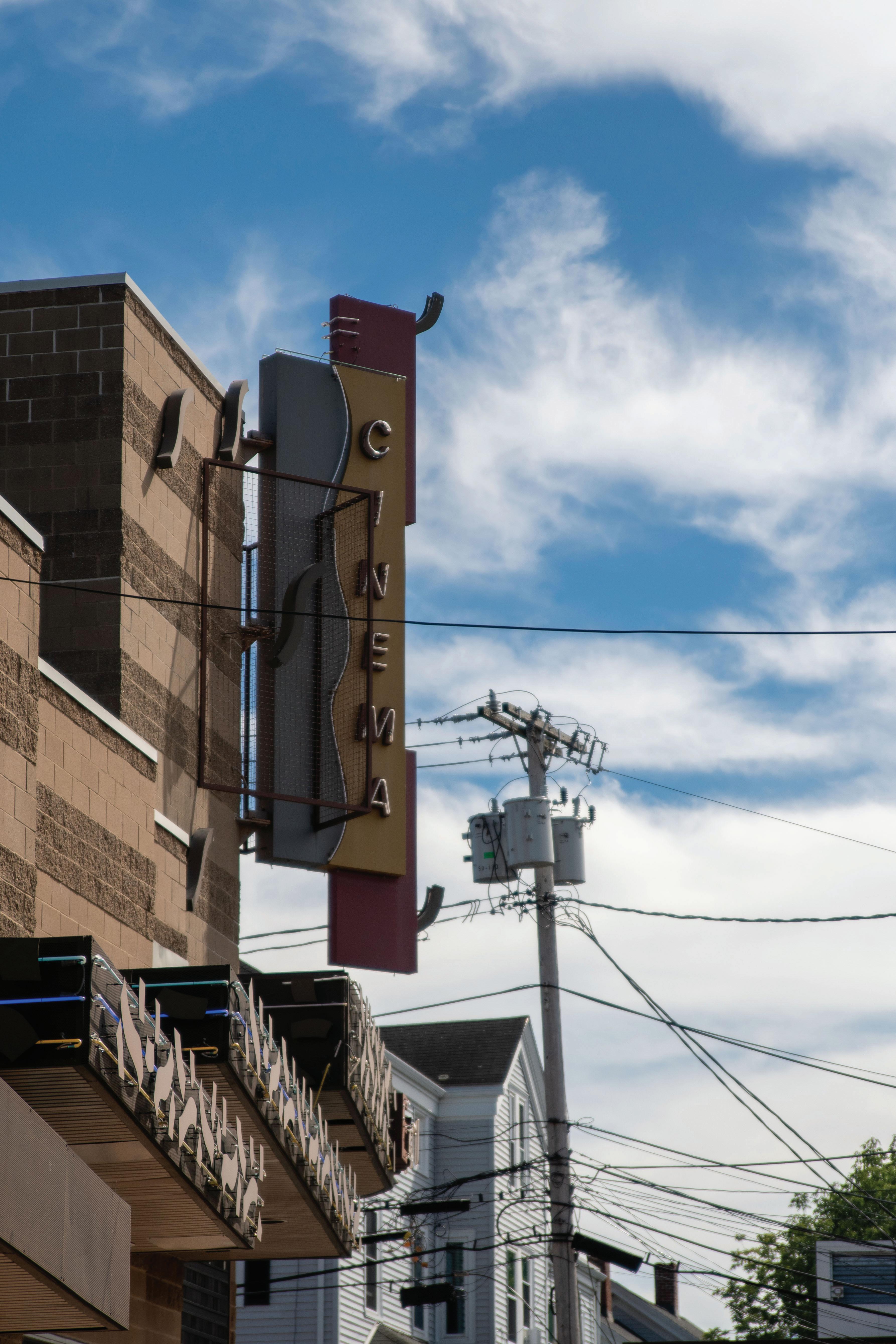
The original Embassy Cinema first opened off of Moody Street in 1928. It went out of business in 1972 and the building was torn down that same year. Today, the only thing that remains of the original location is a metal arch on Moody Street.
In 1998, the California-based company Landmark Theatres, which operates over 30 movie theaters across the country, reopened Embassy Cinema in a new location, next to the old one.
The building was previously the home of the Waltham News Tribune. There are still traces of the newspaper in the building, including a pneumatic tube system for transporting documents between floors. “We still use it now,” Johnson said.
Current Brandeis students were sad to see Embassy go. “It is really sad that the movie theater has closed. When I was a first year student, my friends and I would go there many times every month,” Ethan Gerstman ’23 said. He did not return to the theater after it reopened following the initial COVID-19 lockdown.
“The showtimes after the reopening were bad, and it never worked out with my schedule,” he said.
Not long before the Embassy Theater shut its doors, the City of Waltham approved an amendment to the building permit that would allow it to operate as a live performance space in addition to showing movies. According to Joseph Vizard, the Waltham’s city clerk, if a new operator takes over the building, they will be able to use the building for both purposes. Currently, the building is listed online for lease by the CBRE Group.
The Embassy Theater was the only remaining movie theater in Waltham. The nearby West Newton Cinema may shut its doors soon as well, according to a recent Globe report. Soon, Waltham residents may have to travel to see a movie in theaters.
“It’s a special place. People should know about it,” Andy said.
SHORT NOTICE: Landmark Theatres, the national company that owned Embassy, told employees about the shutdown just three days before the Embassy closed.
BEHIND THE SCREENS: Embassy assistant manager Andy Johnson gave Justice reporters a tour of the theater on its second-to last day, including the projectors behind the theater rooms.
